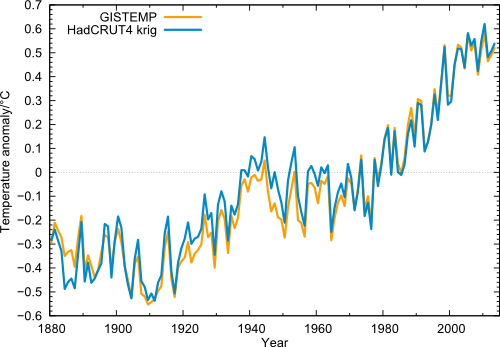I learned a new word!
Science skeptics will say "Scientists said the Coelacanth was extinct, and they were wrong. Therefore they may be wrong about Global Warming."
Total non sequitur.
More accurate was that scientists had never found a living Coelacanth and felt like the evidence warranted provisionally accepting the hypothesis that they were extinct. Once a fisherman stumbled upon one, they gladly revised their working hypothesis based on the new evidence. And threw a Coelacanth party!!!.
Again, yay science!
Except it's not. You want to dismiss it because it hurts your stance, which is fine, but don't try and play it off. You can only cry wolf so many times before people stop listening.
And I'm not a science skeptic. I have an issue with absolutes.
This is basically what it comes down to.
AGW proponent: "The Earth is getting warmer and it's all our fault"
Me: "Why should I believe that?"
AGW: "Because I am a scientist, and it's an absolute fact that's not to be argued with because [blah blah blah]!"
Me: "What about all these other examples of scientists saying x is a fact when it turned out to be not the case?"
AGW: "That doesn't matter, because I am saying this is fact."
Me: "And what's to say that you might not be proven incorrect in a few years and that I should believe what you say now?"
AGW: "So what? I am saying this is the way it is, and you should trust me because I'm a scientist."
Me: "OK, but when I have examples of incorrect conclusions being drawn by other scientists in the past based on data what makes yours special that I should believe you at face value?"
AGW: "That's a non-sequitor, it doesn't matter, I'm right, listen to me."
Me: Walks away because they don't realize they are no different than creationists.


